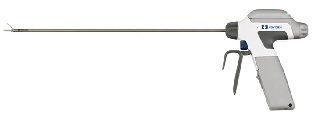Ethicon, a subsidiary of Johnson & Johnson, is a major player in the surgical instruments market, manufacturing a range of medical devices for use in laparoscopic surgery. In recent years, Ethicon has become embroiled in a legal battle with Covidien, a competing manufacturer of medical devices, over the patent for an ultrasonic scalpel used in laparoscopic surgery. In this essay, we will explore the history and implications of the legal battle between Ethicon and Covidien, including the importance of patent protection in the medical device industry and the potential impact on innovation and competition.
Background
The legal battle between Ethicon and Covidien began in 2012, when Ethicon filed a lawsuit alleging that Covidien's ultrasonic scalpel infringed on Ethicon's patents. Ethicon claimed that Covidien had copied its technology for an ultrasonic scalpel used in laparoscopic surgery, a device that uses high-frequency sound waves to cut and coagulate tissue during surgery.
Covidien denied the allegations, arguing that its ultrasonic scalpel was a unique and innovative product that did not infringe on Ethicon's patents. The case went to trial in 2014, and a jury found that Covidien had willfully infringed on Ethicon's patents, awarding Ethicon $176.5 million in damages.
Covidien appealed the verdict, and in 2016, the US Court of Appeals for the Federal Circuit upheld the jury's findings, ruling that Covidien had willfully infringed on Ethicon's patents. Covidien was ordered to pay Ethicon $176.5 million in damages, as well as an additional $20 million in enhanced damages for willful infringement.
Importance of Patent Protection
The legal battle between Ethicon and Covidien highlights the importance of patent protection in the medical device industry. Patents are a crucial tool for protecting the intellectual property of medical device manufacturers, allowing them to invest in research and development and bring innovative products to market.
Without patent protection, medical device manufacturers would have little incentive to invest in research and development, as they would not be able to recoup their investment through sales of their products. This could stifle innovation and hinder progress in the field of medical devices, ultimately limiting patient access to life-saving treatments and technologies.
The legal battle between Ethicon and Covidien also highlights the challenges of enforcing patent rights in a complex and competitive market. Medical device manufacturers operate in a highly competitive and rapidly evolving industry, with new technologies and products emerging on a regular basis. This can make it difficult to monitor and enforce patent rights, as competitors may attempt to develop similar products or technologies that infringe on existing patents.
Impact on Innovation and Competition
The legal battle between Ethicon and Covidien has raised concerns about the impact of patent disputes on innovation and competition in the medical device industry. Some have argued that the high cost of patent litigation can stifle innovation and limit competition, particularly for smaller companies that may not have the resources to defend their patents in court.
Others have raised concerns about the potential for large companies like Ethicon and Covidien to use patent disputes as a means of blocking competitors and maintaining their dominance in the market. This can limit patient access to new and innovative technologies and products, as well as drive up the cost of medical care.
In response to these concerns, some have called for changes to the patent system to promote greater transparency and efficiency in the patent process. This could include measures such as mandatory patent licensing and the creation of a patent pool, which would allow multiple companies to share patents for common technologies or products.
As the medical device industry continues to evolve, it is likely that patent disputes will continue to arise. It is important for manufacturers, regulators, and policymakers to work together to create a patent system that promotes innovation and competition, while also protecting the intellectual property rights of manufacturers.
One potential solution is to encourage greater collaboration and information sharing between medical device manufacturers. By working together to develop common technologies and products, manufacturers can reduce the risk of patent disputes and promote greater efficiency in the patent process.
Another potential solution is to reform the patent system to promote greater transparency and efficiency. This could include measures such as mandatory patent licensing and the creation of a patent pool, which would allow multiple companies to share patents for common technologies or products.
Overall, the legal battle between Ethicon and Covidien over the patent for an ultrasonic scalpel used in laparoscopic surgery highlights the importance of patent protection in the medical device industry. While patent disputes can be costly and complex, they are a necessary part of the process of bringing innovative products to market. It is important for manufacturers, regulators, and policymakers to work together to create a patent system that balances the needs of innovators with the needs of patients and the healthcare system as a whole.
